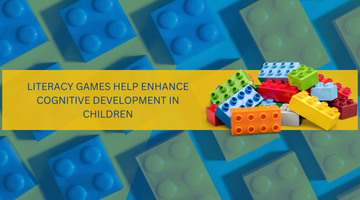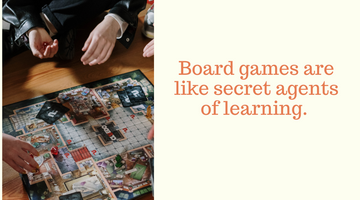Literacy games are an essential tool for children to develop and enhance their language and literacy skills. Educational toys and games are designed to be fun and engaging, making it easier for children to learn and practise their language skills in a way that is not monotonous or tedious. Here are some reasons why literacy games are so important for children:
- Promote language development: Literacy games help to promote language development in children by providing them with opportunities to practice their vocabulary, grammar, and syntax. These games often involve reading, storytelling, and writing, which all help to improve children's language skills.
- Enhance cognitive development: Literacy games also help to enhance cognitive development in children. These games require children to use their critical thinking and problem-solving skills, as well as their memory and attention to detail. By playing these games, children can develop their cognitive abilities in a fun and engaging way.
- Improve reading and writing skills: Literacy games are an effective way to improve reading and writing skills in children. By playing games that involve reading and writing, children can practice their comprehension, spelling, and grammar, as well as learn new vocabulary and sentence structures.
- Encourage a love of reading: Literacy games can help foster a love of reading in children by making it a fun and engaging activity. By playing games that involve reading or storytelling, children can develop an appreciation for books and language that can last a lifetime.
- Increase confidence and self-esteem: Finally, literacy games can help to increase confidence and self-esteem in children. By providing them with opportunities to succeed and achieve small victories, children can develop a sense of pride in their abilities and feel more confident in their language skills.
Here are ten literacy games that are fun and engaging for children to play while also promoting their language and literacy skills:
- Alphabet Hunt: This game involves hiding letters of the alphabet around the room or outdoors and challenging children to find them. As they find each letter, they can say its name and sound, helping them learn the alphabet and letter recognition.
- Storytelling: Children can take turns creating a story by adding one sentence at a time. This game helps children develop their storytelling abilities, vocabulary, and creativity.
- Sight Word Bingo: This classic game can be adapted to include sight words instead of numbers. Children can match words on their bingo card to words read aloud by the parent or teacher.
- Word Scavenger Hunt: Similar to the alphabet hunt, this game involves finding specific words hidden around the room or outdoors. This activity promotes word recognition and reading comprehension.
- Scrabble Junior: This version of the classic board game uses pictures and letters to help children learn how to form words. This game helps children develop spelling skills and introduces them to new vocabulary words.
- Rhyming Memory Game: Children can play a memory game where they match cards with pictures or words that rhyme. This game helps children develop phonemic awareness, the ability to hear and distinguish different sounds in words.
- Mad Libs: Mad Libs are fill-in-the-blank stories that children can complete with their own words. This game promotes vocabulary and grammar skills while also being a fun and creative activity.
- Hangman: This classic game involves guessing letters to complete a hidden word. It helps children develop spelling and vocabulary skills while also being a fun challenge.
- Sentence Scramble: This game involves taking a sentence and mixing up the words. Children then have to unscramble the words to form a complete sentence. This activity helps children develop sentence structure and grammar skills.
- Reading Theater: Children can take turns reading a script and performing a play. This game helps children develop fluency and expression while also promoting reading comprehension.






